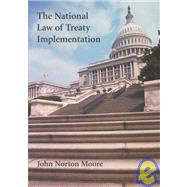|
1 | (8) | |||
|
8 | (397) | |||
|
8 | (109) | |||
|
8 | (41) | |||
|
49 | (68) | |||
|
117 | (5) | |||
|
122 | (234) | |||
|
124 | (30) | |||
|
154 | (1) | |||
|
154 | (1) | |||
|
155 | (19) | |||
|
174 | (13) | |||
|
187 | (4) | |||
|
191 | (6) | |||
|
197 | (1) | |||
|
197 | (8) | |||
|
205 | (10) | |||
|
215 | (19) | |||
|
234 | (21) | |||
|
255 | (55) | |||
|
310 | (3) | |||
|
313 | (2) | |||
|
315 | (6) | |||
|
321 | (1) | |||
|
322 | (1) | |||
|
322 | (2) | |||
|
324 | (1) | |||
|
325 | (3) | |||
|
328 | (1) | |||
|
328 | (2) | |||
|
330 | (1) | |||
|
330 | (1) | |||
|
331 | (1) | |||
|
332 | (4) | |||
|
336 | (13) | |||
|
349 | (1) | |||
|
350 | (4) | |||
|
354 | (2) | |||
|
356 | (11) | |||
|
367 | (11) | |||
|
367 | (3) | |||
|
370 | (8) | |||
|
378 | (16) | |||
|
378 | (9) | |||
|
387 | (7) | |||
|
394 | (7) | |||
|
401 | (4) | |||
|
405 | (207) | |||
|
406 | (15) | |||
|
407 | (1) | |||
|
407 | (1) | |||
|
408 | (1) | |||
|
409 | (2) | |||
|
411 | (1) | |||
|
411 | (2) | |||
|
413 | (1) | |||
|
413 | (1) | |||
|
414 | (1) | |||
|
414 | (1) | |||
|
414 | (1) | |||
|
415 | (6) | |||
|
421 | (16) | |||
|
437 | (169) | |||
|
606 | (6) | |||
|
612 | (42) | |||
|
612 | (12) | |||
|
624 | (19) | |||
|
643 | (11) | |||
|
654 | (43) | |||
| Annex | 697 | (28) | |||
| About The Author | 725 |









